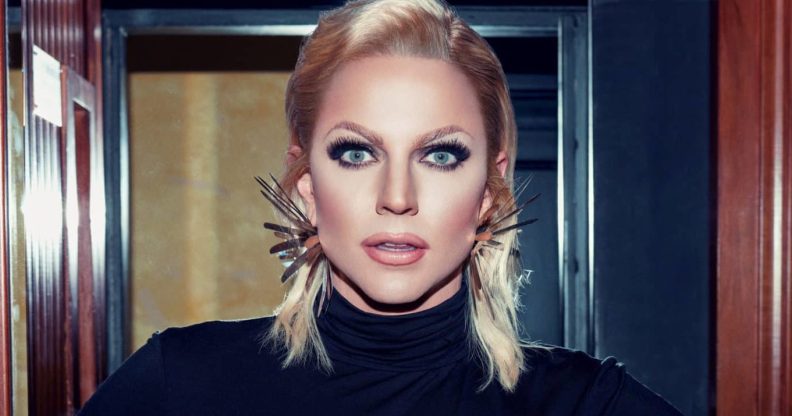Courtney Act joins backlash as Australian census accused of ‘erasing’ queer people

Courtney Act said the decision not to ask Australians about their sexuality or gender identity is “archaic”. (Supplied)
Courtney Act has joined criticism of the Australian census, which has been slammed not including LGBT+ people.
The census, which takes place every five years and is a legal requirement to complete, will ask respondents about their sex but not their gender, and will not ask about sexual orientation.
The question on sex has an “other” option where respondents can write in their sex, such as “non-binary” or “intersex”, but does not ask about gender identity or sexuality – a decision that is being criticised by LGBT+ groups in Australia.
Beginning in 2018 – the year after equal marriage was legalised in Australia – the census begun considering adding new questions for the first time since 2006.
Two new topics were added: one on long-term health conditions and another on service with the Australian Defence Force.
But no questions regarding LGBT+ communities were added, except for the addition of an “other” option to the sex question – which was previously available, but only to those who requested a different form.
Courtney Act condemns census for failing to include LGBT+ identities
Trans and non-binary Australians say they feel “erased”, “insulted” and “invalidated” by this year’s census, which has also been roundly condemned by non-binary Drag Race star Courtney Act.
Courtney Act told SBS News: “It’s 2021, people.”
Supporting the call by eight LGBT+ groups for the census to include questions on sexuality and gender identity, Act added: “To not be included in a mass survey of the entire population, it feels a bit dirty. It feels to me like we’re being erased, ignored – that there is a denial of the existence of queer people.
“It’s 2021, people – we’ve got to move with the times. The UK and New Zealand have questions in their censuses, but still Australia does not.”
The UK census gave respondents the opportunity to answer a question about whether their gender was the same or different than the sex they were assigned at birth and – for the first time – included a voluntary question about respondents’ sexual orientation.
The inclusion of questions about LGBT+ identity were welcomed by many charities and LGBT+ groups, although the binary sex question left many non-binary and intersex people feeling excluded.
In May, the Australian Bureau of Statistics (ABS) – which organises the census – posted a statement about why it was collecting information on sex but not collecting information on gender.
“The sex question is one of the most important in the Census, along with age and location, it directly feeds into the official estimates of Australia’s population,” the ABS said.
“People who wish to report their sex as other than male or female will have the option of a ‘non-binary sex’ response category.
“The ABS defines a person’s sex as being based on their sex characteristics, such as their chromosomes, hormones and reproductive organs.
“Gender is about social and cultural differences in identity, expression and experience as a man, woman or non-binary person. A person’s gender may differ from their sex and may also differ from what is indicated on their legal documents.”
But Courtney Act said the lack of questions on gender and sexuality was “archaic”, adding: “The thing about sexuality and gender is that it is not a monolith – and it is not unique to just this little bubble.
“Queer people manifest in religious communities, in people with disabilities, people of diverse genders. There are First Nations LGBTIQ+ people. All of these facets of Australian society are contained in the LGBTIQ+ community.
“For us to have that information allows us to know who we are better as a nation and allows us to allocate resources to bring about change for more marginalised people.”

